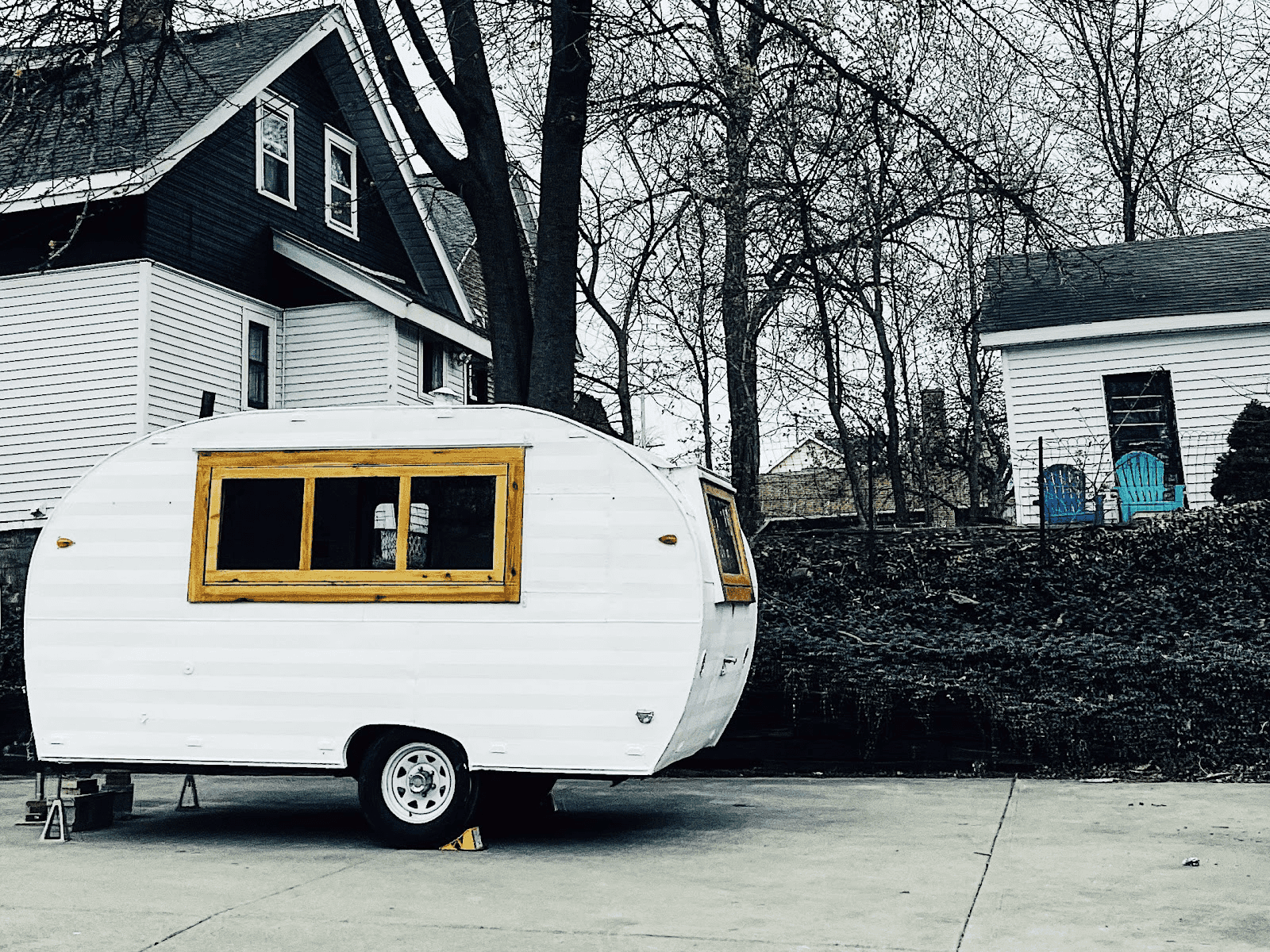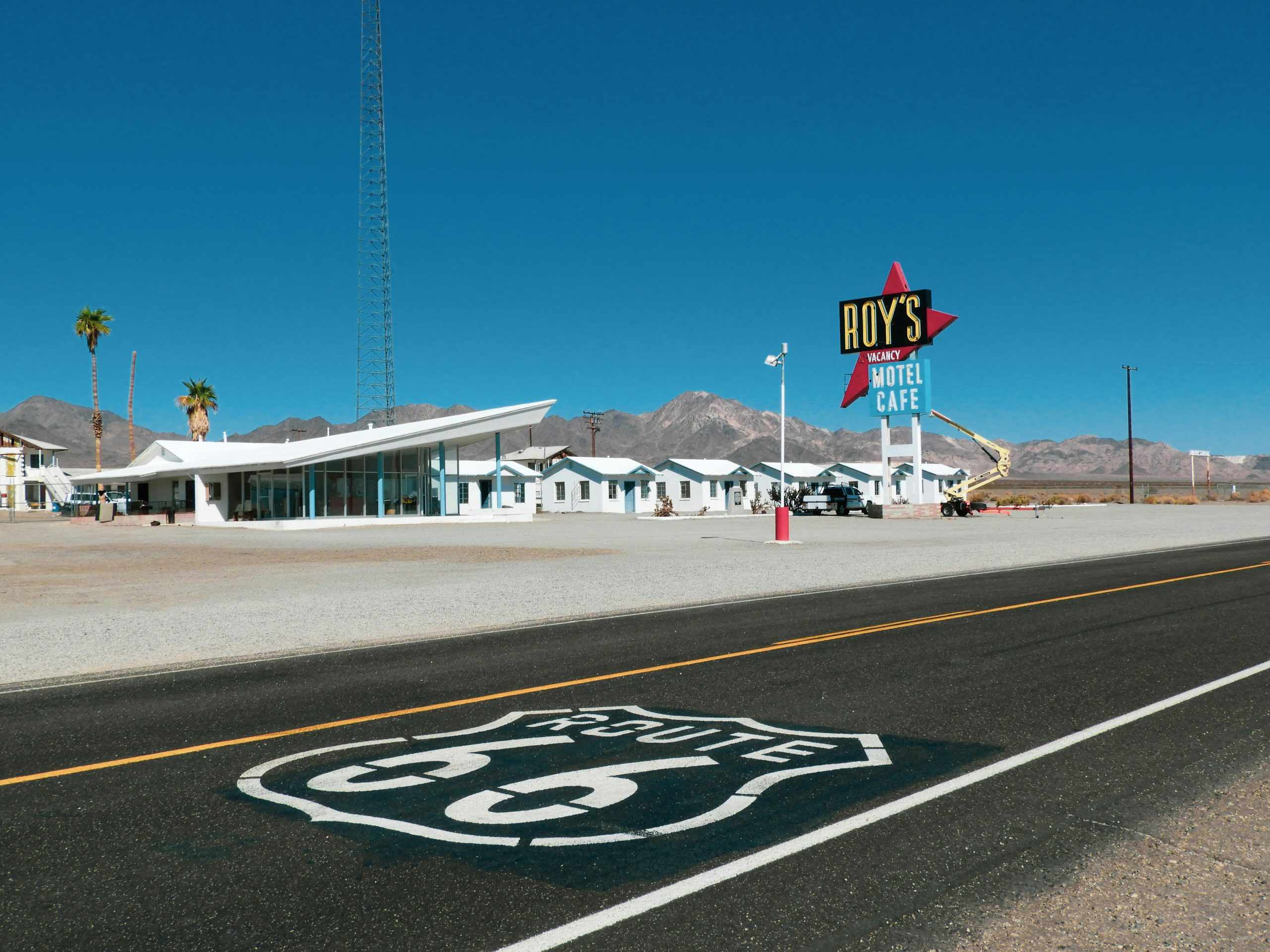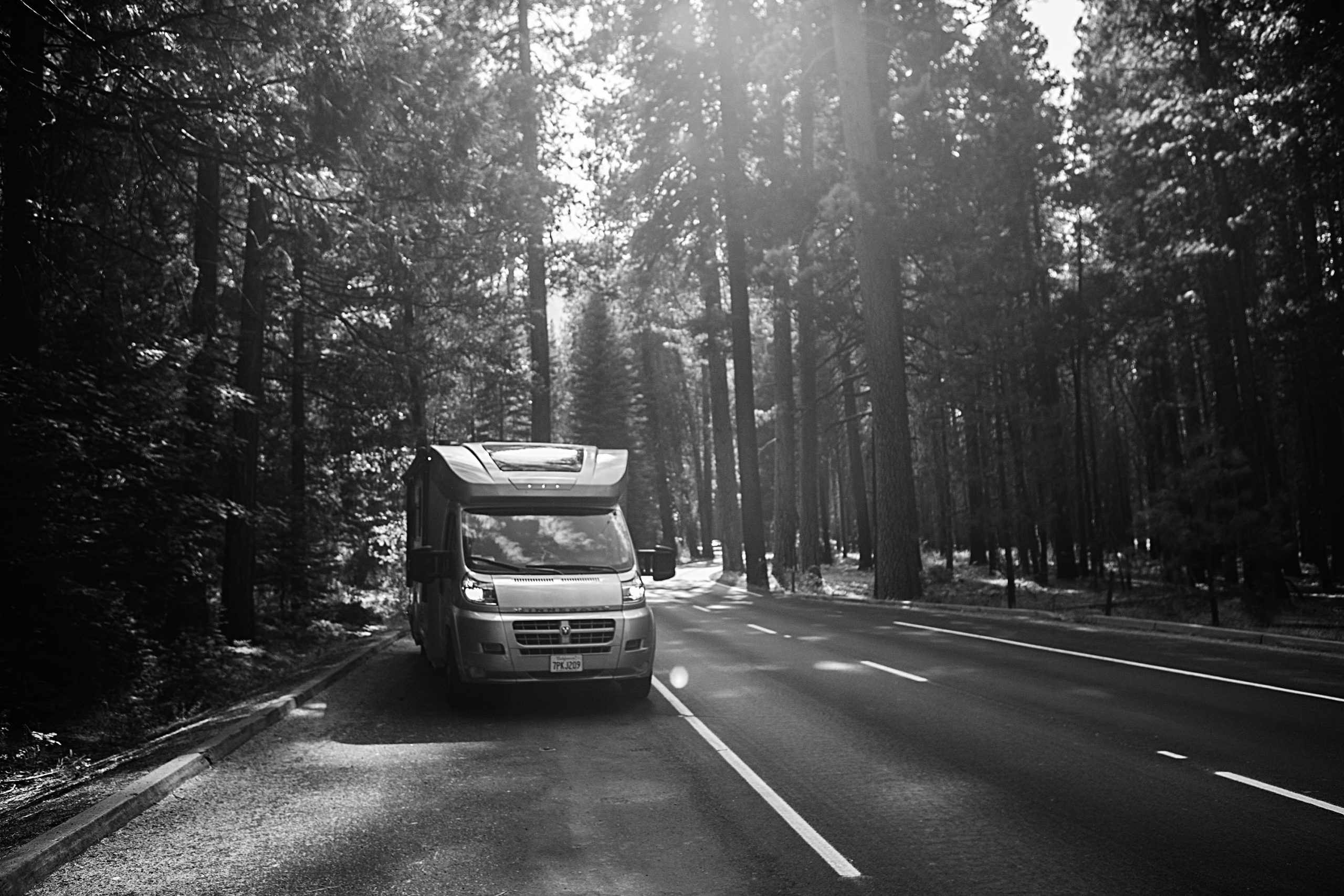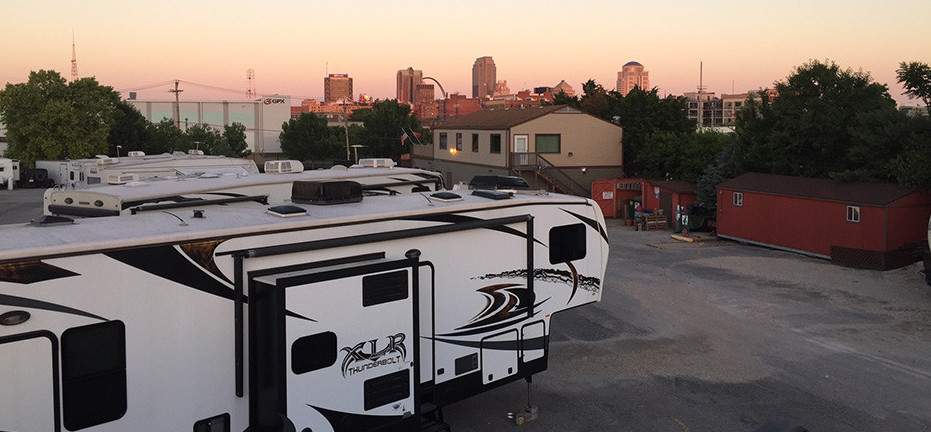When we first started fulltime RVing, we, like most people just hitting the road, were clueless about booking RV Parks. How do we find a good one? Do we make a reservation? How far an advance should we plan? What information will they need from us? Now, having been on the road for about a year and a half, we know what works best for us.
Based on our experience, I’ve compiled a list of tips and things to consider when booking RV parks for your next RV vacation. When it comes to reserving an RV spot, every RVer does things a little differently, but one thing is the same across the board — we all need somewhere to park for the night.
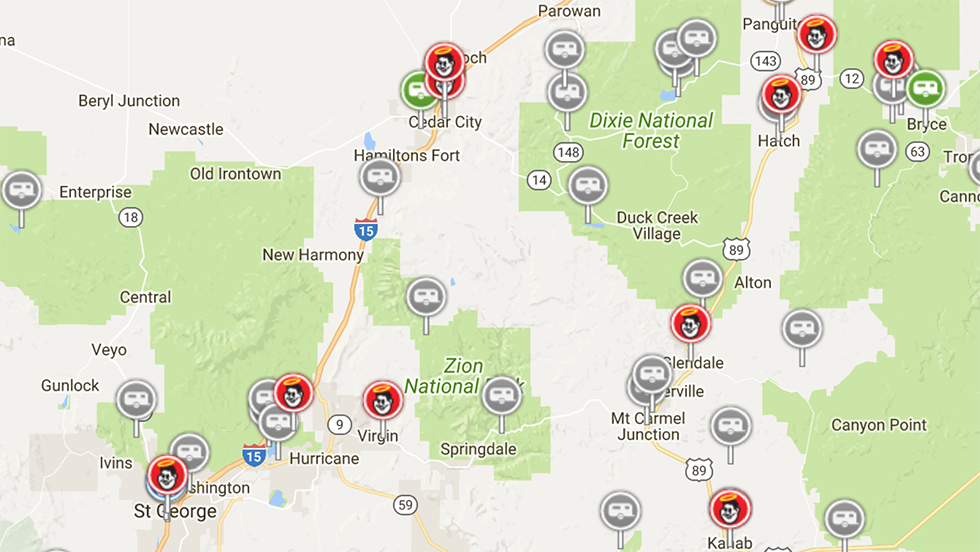
First, you need to establish what kind of parking spot works best for you. Consider if you need full hook-ups — water, electric, and sewer. We usually prefer all three, but will settle for just water and electric if we can get a more scenic spot or if we are just staying for a short time. “Boondocking” or dry camping is also an option for some, but this article will focus on how to find a reserve RV Park spots with hook-ups. For more information on boondocking, check out this post!
Finding an RV Park
Now, how the heck will you decide where to stay? I start by using Good Sam or Campendium to search by the city and state nearest to where we want to stay. Neither of these sites require you to have a membership or sign in to use their search function. The main thing that I consider is proximity to the attraction that we are traveling to an area to visit. I also consider the route we want to take, which helps decide which side of the attraction to stay on.
With an area identified, I can narrow the list of parks by looking at two things — cost and recent reviews. I check out the RV park’s website for the cost. Most list their rates, although some don’t. If they don’t list their rates, this is a huge pet peeve of mine, and I usually move on to the next one. Campendium and RV Park Reviews are my go to for peer reviews, and you may also find recent pricing there as well.
Campendium is generally the site that a lot of younger, non-retired RVers use, so it has information about the cell service at the park, which is a big factor for us, plus many of the reviews have photos. RV Park Reviews has been around longer, so there is often a longer history of reviews for more parks. I use a combination of these two sites to get a good picture of the RV park that I am researching. Both list amenities for RV parks, hook-ups, pool, shower house, etc., but double checking on the RV park’s website doesn’t hurt.
Other thing I consider is the size of the park and the size of the spaces. Sometimes RV parks have a map of the park on their website, but many don’t. I usually check out Google’s satellite view. This will also give you an idea of the tree coverage in the park. Shade can be a valuable resource in hot weather. On the other hand, if you have a satellite dish, you might prefer open sky to get a better signal.
Once you have done some research, the next step is making a reservation. Or not…
Making a Reservation
Many RVers are perfectly content just showing up to RV parks and asking if they have an open spot. After all, one of the perks of RV is flexibility, right? However, we prefer to plan our stops months in advance. Knowing where we will be staying makes life less stressful for us. It really comes down to personal preference, but if you are going to be staying at a place more than a day or two, a reservation is usually necessary if you don’t want to be forced to drive all over looking for a spot.
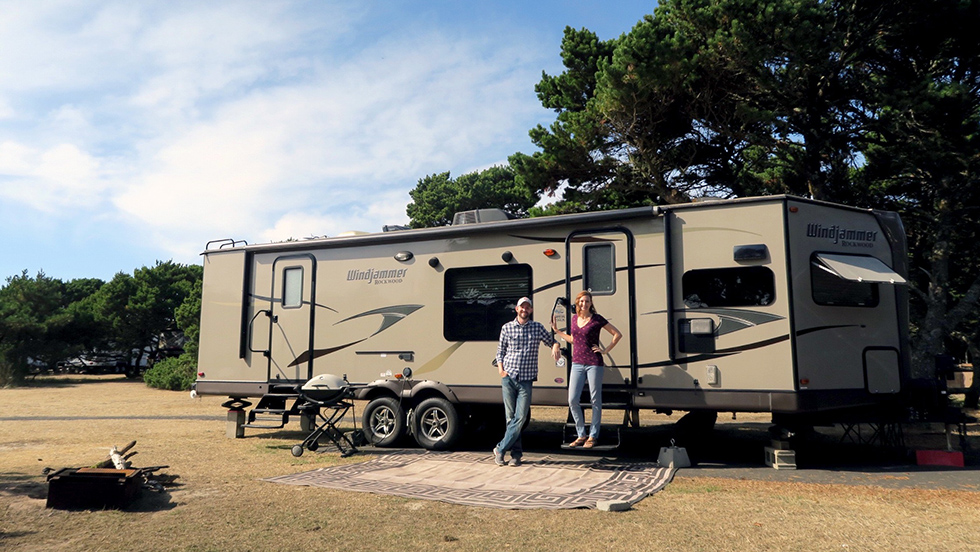
We usually stay in an area an average of two weeks. In that case, I would recommend making a reservation. Typically, the longer you wish to stay, the further in advance you should make your reservation. The time of year really makes a difference as well. Summer is peak season for the northern states, and winter time is busier for the southern states. When we started RVing in the summer of 2016, we had a hard time getting into the RV parks that we really wanted because we had no idea that people booked them months advance. If there is a special event going on in the area, take that in to consideration as well.
Dealing with RV parks to make reservations can be of the most frustrating parts of the RV lifestyle. Some, like KOA for example, have great online systems, but most are behind the times. Calling is still the conventional way to make reservations. There is no industry standard, yet many parks treat you like you should already know how they do things, which can be super irritating.
It’s impossible to anticipate the individual process of each park, but you can be prepared with some information. If you have any questions about this information, talk to you RV rental owner before heading out on your trip.
- What kind of RV is it? Class A, Class C, Fifth Wheel, Travel Trailer, etc.
- What year, make, and model? Some parks only allow recently manufactured RVs.
- How many amps does it require? 50, 30, etc.
- How long is it? You may also need to know the length of your tow or towed vehicle.
- Does it have slides? How many? On which side(s)?
- Do you have any pets? Some limit number of dogs or breed.
- Do you prefer a back in or pull-thru site? There may be a premium price for a pull-thru.
Some RV parks will ask for a deposit, others will just take a credit card to hnew the spot, or just tell you that they have you in the books — which literally means that they have penciled you in an ACTUAL PAPER BOOK! No matter what their system is, you should keep notes on what you were tnew over the phone, including what you expect to pay when you arrive.
Occasionally, I’ll talk to someone at an RV park office who is super nice and friendly, but more often than not, I find that they seem to rush you off the phone. So, I try to be ready with some additional questions. What is their cancelation policy and can we choose which site we’ll be in, are two common things that I ask. I also like to double check their hook-ups situation. I try to get them to send me a confirmation email or at least give me a confirmation number.
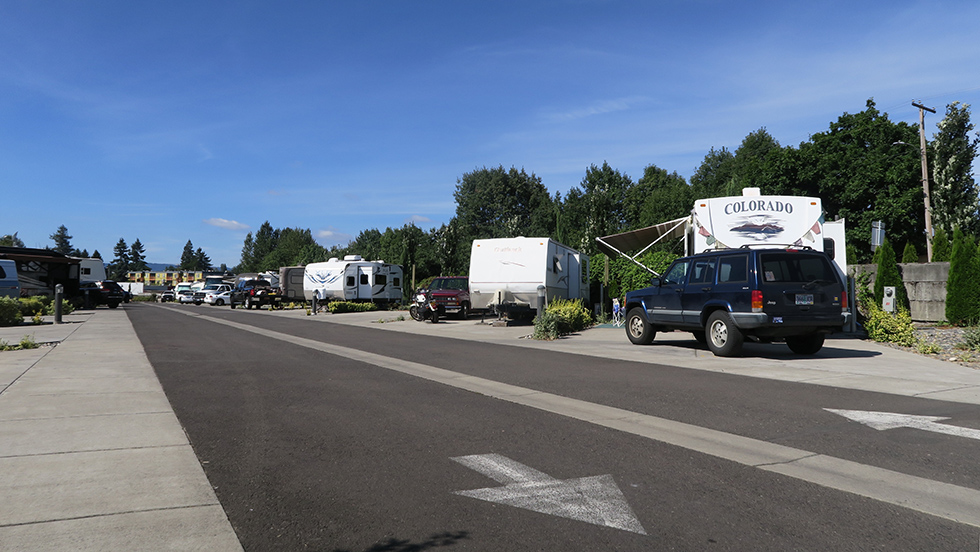
As you gain more experience traveling in an RV, you will figure out what is important to you when choosing an RV park. It can be a bit daunting at first, but once you know what to expect the process becomes much easier!
